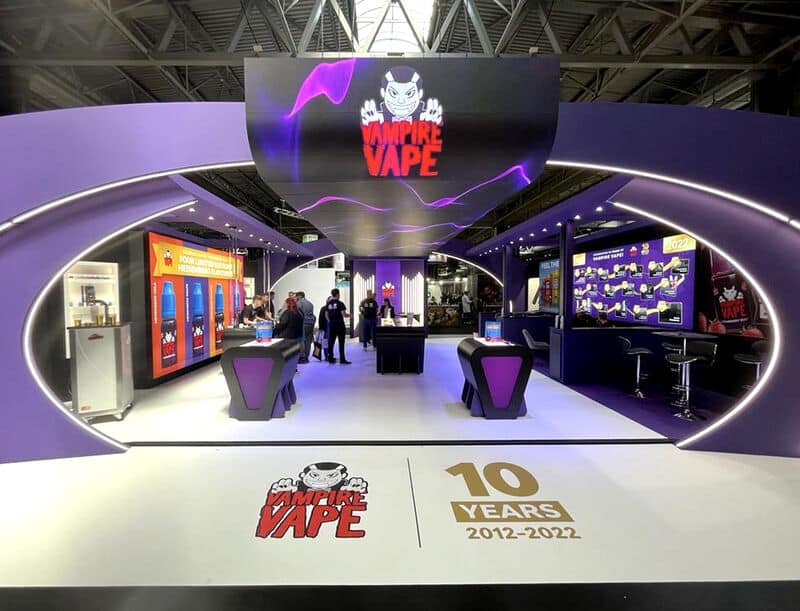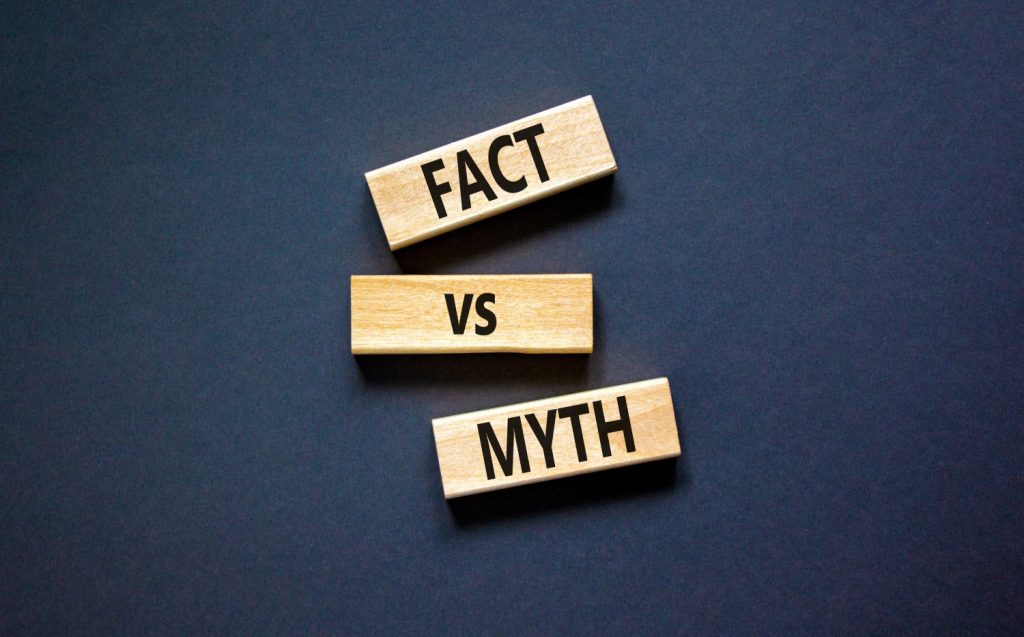Nicotine pouches explained: myths, facts, safety, and smoking alternatives.
By K Futur Nicotine PouchesIn a pivotal moment for the UK’s vaping industry, Japan Tobacco International (JTI)—the multinational behind iconic cigarette brands such as Benson & Hedges—has secured a controlling stake in Flavour Warehouse, the independent powerhouse behind Vampire Vape, one of the UK’s most recognisable e-liquid brands.
The acquisition, finalised on 1 May 2025, marks a significant shift as Big Tobacco intensifies its pivot towards reduced-risk products (RRPs). For Flavour Warehouse, this move follows a decade of rapid expansion, including high-profile acquisitions such as Trulo GmbH in Germany and Vapouriz in Guildford. With JTI now taking the wheel—albeit promising to let Flavour Warehouse steer—questions arise about the future of the Vampire Vape brand, independent innovation, and how this will reshape the UK and European vaping landscape.
This article delves into the details of the deal, what it means for consumers and competitors, and whether this is the start of a larger industry consolidation led by tobacco giants seeking relevance in a smoke-free future.
Deal Overview
JTI’s acquisition gives it over 50%—but under 75%—ownership in Flavour Warehouse, granting it significant control while retaining the company’s independent operational status. The deal, finalised on 1 May 2025, was announced via regulatory filings and press releases and marks one of the largest moves yet by a traditional tobacco company into the UK vape sector.
Flavour Warehouse, established in 2012 in Darwen, Lancashire, has grown into a dominant player in the e-liquid market, exporting to 80+ countries and employing hundreds of staff. Its flagship brand, Vampire Vape, is stocked across the UK in both vape stores and high street chains.
Crucially, despite the share transfer, Flavour Warehouse is expected to retain its current management team and independent branding. This arrangement echoes similar “hands-off” models seen in PMI’s acquisition of Swedish Match and BAT’s backing of Vuse—where brand credibility and street-level loyalty remain vital.
Strategic Rationale: Why Did JTI Buy In?
For JTI, this acquisition is part of a broader shift away from combustible tobacco towards next-generation products (NGPs). The company has lagged behind peers like PMI and BAT in the vaping and oral nicotine space, and this deal is a bid to close the gap.
The move delivers several advantages:
- Instant market presence in the UK and EU without needing to build a brand from scratch.
- Access to a loyal consumer base that trusts Vampire Vape’s identity as an independent.
- Entry into open system vaping—an area often underrepresented by Big Tobacco due to its DIY roots.
In a post-pandemic landscape where cigarette sales are in long-term decline, and vaping regulations are tightening, JTI’s investment helps future-proof its portfolio while hedging against stagnation in its core business.
Flavour Warehouse: A Brief History of Rapid Growth
What began as a two-person operation in a Lancashire garage has grown into a multi-national vape manufacturer, thanks to bold business strategy and brand development.
Over the last decade, Flavour Warehouse has acquired:
- Total Vapour – A UK-based hardware distributor.
- Premier Vaping – A vape retail operation and logistics network.
- Vapouriz – One of the UK’s best-known hardware and e-liquid brands.
- Trulo GmbH – A respected German e-liquid producer, giving access to EU markets and compliance infrastructure.
This aggressive expansion made Flavour Warehouse the UK’s largest independent vape company by revenue and distribution—making it a natural target for acquisition.
Vampire Vape: The Crown Jewel
Founded in 2013, Vampire Vape has become a cult classic in the world of e-liquids. Known for bold branding, clever flavour names like Heisenberg and Pinkman, and its irreverent, almost gothic identity, it stands out in a market often saturated with generic “fruity ice” offerings.
The brand has become synonymous with the UK high street vaping experience, and its success lies in part in its commitment to consistency, compliance, and consumer connection. With over 60 e-liquid flavours and multiple nicotine strengths, Vampire Vape appeals to both newcomers and seasoned vapers alike.
Its strong community roots may be tested under JTI’s control, though the parent company insists brand autonomy will remain.
The Independent Vibe: Will It Survive?
One of the core concerns among industry insiders is whether Vampire Vape will maintain its independent spirit. JTI has publicly stated that Flavour Warehouse will “operate independently,” but some fear this could change over time as corporate synergies and efficiencies take precedence.
Still, there is precedent for this model working. PMI has kept Zyn operating largely autonomously post-acquisition of Swedish Match, and BAT’s Vuse has embraced retail partnerships without fully corporate homogenisation.
Flavour Warehouse’s CEO has reassured customers and distributors that “it’s business as usual” and that the JTI deal “only strengthens our long-term position.”
Market Reactions: Excitement and Caution
The response to the announcement has been mixed:
- Industry leaders welcomed the move, noting it legitimises vaping and may encourage further professionalisation of the sector.
- Retailers expressed cautious optimism, hoping the deal would lead to better supply chains and new product development.
- Consumers expressed fears that Vampire Vape could lose its edge or fall prey to the kind of corporate blandness that Big Tobacco often brings.
On platforms like LinkedIn, vape entrepreneurs debated the implications. One leading figure posted: “This could be great for scale and compliance, but I hope the soul of the brand survives.”
The UK & EU Vape Market Landscape
This acquisition lands at a time of profound regulatory uncertainty. The UK government is pursuing a ban on disposable vapes, restrictions on flavours, and strict packaging rules under the new Tobacco and Vapes Bill. Meanwhile, EU authorities are tightening ingredients lists and advertising standards.
For JTI, acquiring Flavour Warehouse may help navigate these changes more effectively, thanks to its existing compliance infrastructure and cross-border experience.
At the same time, this could lead to greater consolidation as smaller vape brands struggle to survive amid rising compliance costs.
Consumer Implications: What Will Change?
While no immediate changes to Vampire Vape’s product line or pricing are expected, the long-term impact could include:
- Expanded product lines, potentially with greater access to international markets.
- Increased hardware and pod system integration, mirroring trends seen in other Big Tobacco-linked brands.
- More conservative branding, especially if regulators crack down on flavour names or packaging perceived to appeal to youth.
There’s also a chance that JTI’s distribution muscle could get Vampire Vape into supermarkets, pharmacies, or international retailers previously out of reach.
Risks, Controversies, and Cultural Tensions
Not everyone is cheering. Critics of the vaping industry worry that Big Tobacco’s increasing presence will further blur the line between harm reduction and corporate profit-making. Public health advocates warn that industry consolidation may reduce transparency or lead to more aggressive lobbying.
Meanwhile, die-hard Vampire Vape fans have expressed concern online that the brand could “go mainstream” and lose its rebel ethos.
Some regulatory experts warn that Flavour Warehouse could now be held to stricter political scrutiny, given the controversial history of tobacco-funded ventures.
International Expansion Opportunities
With JTI’s global footprint, Flavour Warehouse could expand rapidly into:
- Asia-Pacific markets where JTI already has tobacco retail dominance.
- Africa and Middle East, where vape penetration is still growing.
- South America, particularly in countries with recent RRP legalisation.
Expect to see Vampire Vape popping up in unexpected corners of the world in the next 12–18 months.
What the Future Holds: Innovation or Integration?
The big question is whether JTI will use this acquisition to:
- Drive innovation in flavours, nicotine formats, and delivery systems.
- Integrate Flavour Warehouse products into its global “Logic” or Ploom hardware platforms.
- Replicate the model across Europe by acquiring more mid-sized independent vape firms.
The risk is that corporate conservatism could stifle creativity. But the upside is that greater resources could empower Flavour Warehouse to experiment, innovate, and scale in ways it never could alone.
Conclusion
The acquisition of Flavour Warehouse by JTI is more than a business transaction—it’s a reflection of how rapidly the global nicotine market is evolving. As governments crack down on tobacco and disposable vapes, traditional giants like JTI are pivoting to stay relevant in a post-combustion era. For Flavour Warehouse and its customers, the next few years could bring growth, innovation, and controversy in equal measure.
Whether Vampire Vape can stay true to its roots while enjoying the reach of a global behemoth remains to be seen. But if done right, this partnership could become a blueprint for how independent innovation and corporate resources can co-exist—and thrive—in a heavily scrutinised industry.
The vape world is watching closely.
FAQs
Who owns Flavour Warehouse now?
JTI now owns a controlling (majority) stake but Flavour Warehouse retains independent management.
Will Vampire Vape products change?
Not immediately, though branding and distribution may evolve with JTI’s involvement.
Is this good for the vape industry?
It depends. Some see it as legitimising; others worry about corporate influence on flavour freedom and consumer choice.
Will Flavour Warehouse still make its own decisions?
Yes, according to official statements. But long-term strategy could be influenced by JTI interests.
Further Reading:
For other corporate moves, see KT&G’s €200m Pouch Acquisition Talks. For brand alternatives, check The Best Vape Juice 2025. For a premium device pairing, explore The Five Best Premium Vapes 2025.
E-Liquid ReviewsEUIndustry NewsRegulationsUK







